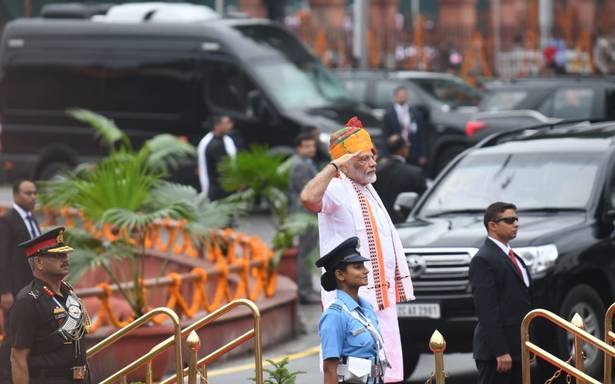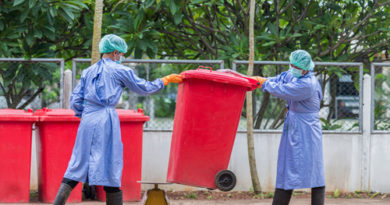Modi Hints at New Policy to Ban Single-Use Plastic

In his speech from the ramparts of Delhi’s historic Red Fort on the occasion of India’s 73rd Independence Day, Prime Minister Narendra Modi said that the country should work toward banning single-use plastic in the country.
“I wish the countrymen to pledge to make India free from single-use plastic by 2nd October. For this, every citizen, municipalities and gram panchayats should come together,” Modi said.
Echoing this announcement, the Minister for Environment, Forest and Climate Change, Prakash Javadekar, said “in response to Prime Minister’s call on India’s 73rd Independence day to make India free of single use plastics, a massive public campaign will be launched engaging all stakeholders. In this regard a series of meetings will be held with all stakeholders including state governments to chalk out a concrete plan to make it a people’s campaign to realise the ultimate target.” Javadekar was speaking at the Indian Consulate in Sao Paulo, Brazil while addressing a gathering comprising of Indian diaspora, NRIs and eminent citizens of Brazil.
The Prime Minister in his speech also announced large scale infrastructure development plans with an investment of Rs 100 lakh crore in road, rail, airport, port, waterways, and other infrastructure.
In his address, the Prime Minister also discussed India’s growing population and the need to check it through public participation. “Population explosion can create new problems, especially for future generations. But there is also an enlightened section of society which is aware of this challenge. We have to ponder on this issue taking along all the sections of the society,” PM Modi said.
Modi also spoke about the ‘Make in India’ program to aid the economy and help improve the rural as well as MSME sector. The PM touched upon the challenges of land pollution especially from the use of pesticides and fertilizers. “We are spoiling health of soil by use of chemical fertilizers and pesticides. When Gandhiji has already shown us the path, can’t we reduce by 10 percent, 20 percent or 25 percent use of chemical fertilizers. I am sure our farmers will oblige my wish.”
He further added that to solve India’s water crisis, the government at both central and state level will come together to get more impetus. “To address challenges of water crisis, a new dedicated Ministry of Jal Shakti has been created. In coming days, Centre and States will together take forward the Jal-Jeevan Mission and an amount of more than Rs. 3.5 lakh crores has been earmarked for this,” PM Modi said.
Currently, under the 2019-20 budget, the Jal Shakti ministry is allocated Rs 8,245 crores as against the last year’s 8,860 crores earmarked for water. This was a drop of approx. 9.5%.
India ranks 13 in the list of 17 Most water-stressed countries in the list that contains over 100 nations. The World Resources Centre or WRI has released a tool that has ranked various countries on ‘water stress’, ‘Drought Risk’ as well as ‘Flood Risk’.
Around half of India’s population has been staring at water crisis or popularly known as Day Zero for the past few years. Recently Chennai faced the brunt when the local taps and water bodies became bone dry affecting people, businesses and economy.
Modi also spoke about blue economy and its importance for aquaculturists, “We have to lay stress on Blue Economy (ocean resources). Our farmers should become exporters and every district of the country should be an export hub. Value-added goods from every district should reach global markets.”
With water being central in the above-mentioned announcements, much still needs to be done as many developmental activities like roads, new construction and energy demand are competing against each other with deteriorating air, soil and water quality.
Though announcements have been made, the real picture will come clearer on the ground as and when the pollution indicators and people’s health start to improve. Javadekar who doesn’t believe that floods are a result of climate change is ironically attending the BRICS summit. While countries like Indonesia, UK and Mexico are sounding alarms on climate change as climate emergency, Indian polity is struggling with admitting that heatwaves, monsoon deviation, flash floods and dying animals are a man-made result of environmental exploitation.



